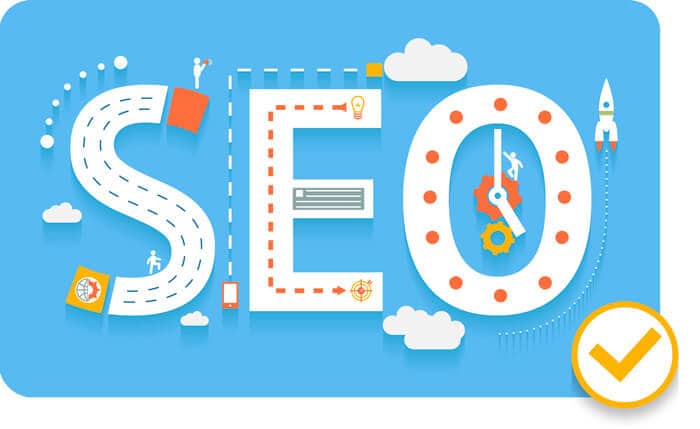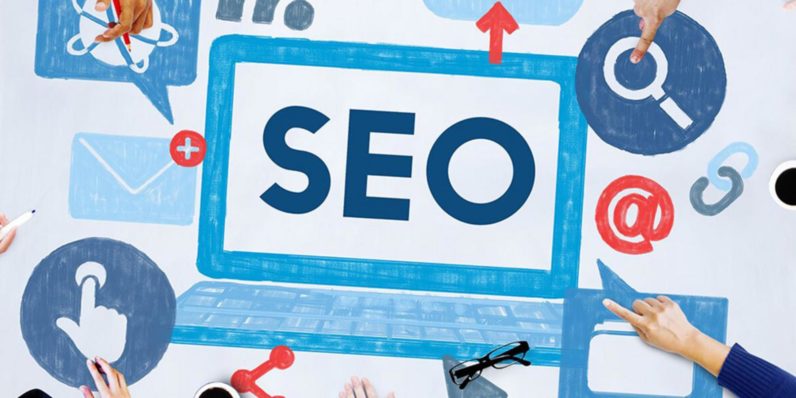
 .webp
.webp What is On-Page SEO and Off-Page SEO
The on-page SEO is concerned about the contents of your website. On the contrary, the off-page SEO deals with the ranking and popularity of your page. In order to ensure that your webpage remains competitive in this market, you must have a good on-page SEO and off-page SEO. However, in the battle between On-Page SEO vs. Off-Page SEO practice, is there truly a more important one?
The concept of this two SEO practices may be alien to some. This is why we have created a guide on how to improve the on-page SEO and off-page SEO of your site. Despite the fact that these concepts are different, they are both essential in ensuring that your page is able to rank higher for your chosen keywords.
What is On-Page SEO?
On-page SEO (also known as off-site SEO) deals with the contents of your website and how relevant they are to what your page is about. The on-page SEO of your site is something that you have control over since it targets the elements on your site. The use of keywords for your content will play a major role in your search engine ranking.
The Importance of On-Page SEO
On-page SEO is important in improving the ranking of your site because it can improve the traffic on your site. Since this SEO practice deals with the content, this can dictate how long the user will stay on your page. If the user stays on your page longer, Google’s algorithm will provide you with a higher score to improve your site ranking. When the keywords are naturally placed in your article, you will have a competitive edge over other websites.
Six Factors that can Improve the Performance of your On-Page SEO
A. Title Tags
As the name suggests, this will become the title of your page. Since you are dealing with keywords, it is important to place them in the title tag to rank higher in search engines. However, since it will be your introduction to the readers, you need to make it appealing to the user.
If your title tag is not natural sounding, your readers may not be enticed to click on the link. When you want to rank higher, it is important to write a title tag that will appeal to the user. You can place the importance of main keywords after making sure that the entire title tag is natural sounding.
B. URL Structure
Similar to your title tags, the URL structure must also contain a keyword. However, you should not immediately change older URLs for the sake of putting in keywords on your current URL. Before you plan on switching up the entire URL found on your site, you will need to put several things into consideration as this practice can lead to a penalty.
C. Meta Description
The meta description is what you will find on the search engine as the description for your page. In order for users to click on your link, the meta description must be natural sounding and it must also contain your keywords.
The meta description must detail the contents that are found on your page. If the title tag is the door of the user to your page, the meta description is the window through your home. It will be able to provide a sneak peek into what is in store for them when they click on your link.
D. Headings
The importance of putting keywords on your heading may not be as essential as it is in the title tag, but it adds weight to your ranking. It is important to note, however, that the heading must be related to the content of the section that it is referring to.
You can mix up the keywords that you put in the heading to make it sound more natural. Moreover, you can also choose to use related keywords in the heading to prevent redundancy. You can also use various types of heading to separate your content. This will also help in separating the sections on your page to make it more readable for the users.
E. Page Content
The title tags and headings will lure the readers in, but the content will make the users stay on your page. When readers stay on your page longer, it will also help with the increase in your ranking. The algorithm that major search engines use can gauge if your page provides useful content.
Your content should also contain the main keyword and other related keywords to improve your SEO. However, major search engines will also rank you based on the value that your site provides. This is why it is important to do your research when it comes to profitable keywords. This is because it is important to know how you can transform them into a beneficial article for the user.
When your content is valuable and useful, your ranking on major search engines will also gradually improve as time goes by. Moreover, you can add in more sections to ensure that you can cover any questions that your readers may have. You can research about the frequently asked questions of readers that are related to the keyword that you are targeting. Blogs provide you with the flexibility to create content that is useful and valuable for the user.
F. Internal Linking
Google can have a feel of the most important content on your site if you link it to your other pages. In order to improve the on-page SEO through internal linking, here are some tips that you can use:
“Since your homepage has more backlinks, it is wiser to have the internal link be linked from the homepage. However, the links that you put on your site should be relevant to the content that you will be using. When the site is irrelevant, this places little to no value in the link and it can be even be considered a violation, which can allow you to incur a penalty.”
If you wish to learn more about how to improve the content on your page for your on-page SEO, you can refer to this article: Tips for SEO Content Writing
What is Off-Page SEO?
Off-page SEO (also known as off-site SEO) is the practices that you use outside of your website that will help improve your search engine ranking. In terms of ranking, off-page SEO will be the basis of the authority of your site. The trustworthiness and relevance of your site will be the factor on how well your website will rank. In short, the performance of your off-site SEO is dependent on other websites.
A. Domain Authority
If your page has a higher domain authority, it is highly likely that you will rank higher on major search engines. The reason why sites like Wikipedia and Buzzfeed are usually on top of search engine rankings is that of their high domain authority.
When you have a high domain authority, it would not directly add to your income. However, a high domain authority can lead to increase in traffic. In turn, this increases your search engine ranking and it can add to your income.
B. Links
Positive results that come from off-page SEO is founded on the quality of websites that are linked to your page. However, most people rush to have their websites linked to as many websites as they can. It is important to remember that when it comes to backlinks, it is more important to be linked to relevant websites.
If you are a real estate website, it is best to have backlinks from sites that are related to your page or the article that is linked to your page must be on a topic that you have authority over. On the contrary, if the link is not related to your page, Google algorithms would not put as much value in the backlink.
The complementary relationship between the on-site SEO and the off-site SEO will be reflected in how far your content will be able to reach. Simply put, when you create a content that will be able to catch the attention of readers, it is highly likely that they will share your contents with others by linking it from their page.
Different Types of Links and their Value
However, not all links are created equal. There are three different types of links when it comes to SEO marketing. Web page owners can post a link to their site in online forums or as a comment in other blogs. This type of link is called a self-created link, but you should do this practice minimally. This is because it does not have a high value when compared to other links.
The next two types of links have a greater value as far as Google algorithm is concerned. A natural link is a link that is placed on an article since it contains points that are related to the aforementioned article.
This is where the Google algorithm places more value when it comes to the relevance of a link. An event planning website with a link to an electronics website would not be as valuable when compared to a food website that is linked to a restaurant website.
On the other hand, there is also the manually built link where you encourage others to link to your site. Furthermore, you can ask customers to review your page or you can ask social media influencers to do a feature on you. In addition to this, another way to get off-site SEO is by doing guest blogs that can provide a link to your webpage.
C. Social Media Marketing
When your post becomes viral, the traffic to your site will also increase. However, if you want your post to become viral, you should target to improve your social media marketing. We all know that when a reader enjoys your article, they will share it on their social media page like Facebook and Twitter. While there is no exact formula on how to make a viral post, it starts with simply having an interesting content that will attract the users.
If your article is creative and valuable, you will be able to garner more social media shares. This is why it is important to create a responsive page. This is because it will allow your readers to share the content easily even when they are on their mobile phone.
It is also important that your page would have its own social media counterpart where you can share articles and content in a more convenient manner and form. This will allow the users to find your content quickly as they scroll through their page. Social media marketing may not be as valuable as backlinks, but it can increase your traffic and provide you with a wider audience for your content.
On-Page SEO vs. Off-Page SEO: What is the Difference?
There is a lot of difference between on-site SEO and off-site SEO, but both are just as important when it comes to getting a high ranking on search engines. They may be different, but they work together to help improve your ranking and performance.
On-page SEO will do the work internally, while off-page SEO takes care of external factors. On-page SEO deals with the content, while off-page SEO values how well the content spreads in the market. There is a huge difference between the two SEO practices, but they are meant to complement each other.
This is why it is important to continue improving the content on your page as you get more links. This is due to the fact that you will be able to attract more readers that may ultimately want to link to your website as well.
To wrap it up, in terms of on-page SEO and off-page SEO, one would not work without the other. If you do on-page SEO without improving your off-page SEO, your efforts would remain futile. However, if you depend on just off-page SEO without ensuring that your content is high-quality, the traffic on your page would not be as high.
Related Articles
-
How Long Does It Take to See SEO Results
When you use SEO to increase your ranking, you will need to do research. Moreover, you need to shell out...
-
Tips For Seo Content Writing
When you build your own page, one of the most important factors that you should pay attention to is the...
-
Why people are afraid of seo?
f you’re a small business owner, you have likely heard at least one person suggest that you learn SEO (search...



